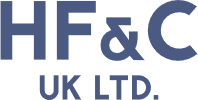Navigating Supply Shortages:
A Procurement Managers Success Story
Introduction
The COVID-19 pandemic brought unprecedented challenges to businesses worldwide, disrupting supply chains and causing widespread shortages of essential materials. In this case study, we explore the exemplary efforts of a procurement manager within the automotive industry who adeptly managed supply shortages and mitigated cost increases, enabling the company to maintain production and outperform competitors during the crisis.
Background
As the pandemic unfolded, the automotive industry faced significant disruptions in its supply chain, with shortages of critical components threatening production capabilities. The procurement manager, Harry Adams, was tasked with sourcing materials and managing supplier relationships, faced immense pressure to secure supplies amidst volatile market conditions. With competitors faltering due to supply chain disruptions, the stakes were high for the company to maintain its manufacturing operations and meet customer demand.
Challenges
Unpredictable Market Dynamics
Market volatility and uncertainty made it difficult to forecast demand and anticipate supply chain disruptions, requiring agile responses to rapidly changing circumstances.
Supplier Instability
Some suppliers faced financial difficulties or operational disruptions, jeopardizing their ability to fulfil orders and maintain consistent supply levels.
Cost Escalation
Scarce materials and increased demand led to price hikes, threatening to inflate production costs and erode profit margins.
Strategies and Implementation
Despite the formidable challenges, the procurement manager devised a strategic approach to address supply shortages and mitigate cost increases:
1. Working with Producers and Hedging
Recognising the risks of price increases on critical raw materials, our team lead engaged aluminium producers and others, to negotiate bulk purchases prior to predicted price increases, as forecast by the business. Whilst initially capital intensive, this strategy proved to reduce total cost had current procurement operations continued unchanged.
2. Collaboration and Communication
Open lines of communication were established with suppliers to facilitate transparency and collaboration. Regular dialogue allowed for early identification of potential disruptions and proactive problem-solving to mitigate their impact.
3. Strategic Inventory Management
The procurement manager implemented inventory optimization strategies, strategically stockpiling critical materials to buffer against supply disruptions and minimize production downtime.
4. Negotiation and Cost Control
Leveraging their negotiation skills and market insights, the procurement manager negotiated favourable pricing agreements with suppliers, mitigating cost increases and preserving profitability.
Results and Achievements
The proactive measures implemented by our expert yielded significant results, enabling the company to navigate supply shortages and maintain production levels:
1. Continuous Operations
Despite the challenging environment, the company sustained its manufacturing operations without significant interruptions, ensuring a consistent supply of vehicles to meet customer demand.
2. Competitive Advantage
While competitors struggled with supply chain disruptions and production delays, the company remained resilient in production, securing raw materials in a highly competitive market.
3. Cost Mitigation
By effectively managing supply chain risks and controlling costs, our colleague helped sustain profit margins and financial stability, positioning the company for long-term success in a volatile market.
Conclusion
Harry’s proactive and forward-thinking management of supply shortages amidst the COVID-19 pandemic exemplifies the role of strategic procurement in ensuring business continuity and resilience. Through proactive measures including supplier collaboration and cost control, they enabled the company to manage the supply chain crisis to gain a competitive edge in the market. Their success underscores the importance of agility, innovation, and effective stakeholder management in navigating unprecedented challenges and driving sustainable growth in turbulent times.
These are the talented individuals that HF&C UK seeks so that we can deliver the best outcomes possible for our clients. If you believe you can help us in our journey, we would love to hear from you, and understand whether you would be a good fit for the business.
For our clients, you can rest assured that our experts will provide meaningful insights from first-hand experience, helping you create value for your organisation.


